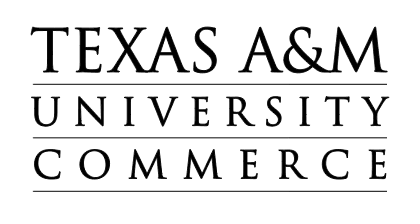Photography


The curriculum in Photography comprises basic and advanced undergraduate courses, as well as courses leading to graduate degrees. Offerings include basic and advanced black & white, digital photography and color management, studio and location lighting, medium format and view camera operation, commercial photography, documentary photography, and environmental portraiture. Additional courses are offered in non-silver processes, illustration, nature and wildlife photography, history of photography and photography business practices.
Facilities are among the best in the region and include shooting studios equipped with strobe and tungsten lighting, darkrooms with 32 black & white enlargers,flatbed and dedicated film scanners with large format inkjet and dye-sublimation output, and many digital work stations. A multi-station, state-of-the-art computer lab supports courses and projects in basic and advanced digital photography. A&M-Commerce photography was one of the first programs in the southwest to offer digital imaging as an integral part of the photography degree. Additional equipment and accessories are available to students either in studios or on a check-out basis, including 35 mm, medium and large-format cameras.

An important component of the Photography degrees is the Photography Internship, where students earn college credit and gain valuable experience by working in the professional world. Depending upon the student's area of emphasis, interns are placed in commercial studios, galleries, museums, newspapers or magazines, where they benefit from "real life" experiences and professional contacts.
During the last several decades photography majors have consistently won numerous awards in national and international contests. A&M-Commerce photography won Grand Prize or First Place in the prestigious Photo Imaging Education Association International Student Contest eight years in a row! Photography students have medalled in the DSVC Annual Student Show, The Houston Show and have been published in CMYK magazine.
Laboratory photography courses are intensive, and majors ordinarily take no more than two such courses in the same semester. Photography majors must own or have access to an adjustable 35mm single-lens reflex camera and hand-held light meter. Most students will need digital SLR cameras by the time they enroll in second semester classes beginning in Fall 2006. Students supply their own film, photographic paper, and some chemistry. Texas A&M University-Commerce has well-equipped darkrooms and studios and provides photography students with an extensive amount of additional supplies and equipment through an equipment check-out service.













